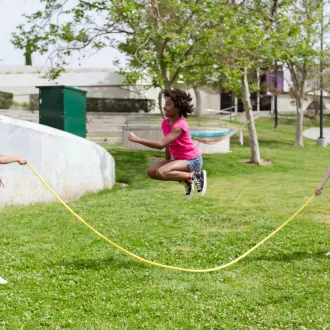ByOnlinecourses55

Strategies raising children autonomy - foster children autonomy
Raising autonomous children is both one of the most challenging and one of the most rewarding responsibilities that parents have. Encouraging autonomy in children from an early age not only helps them become independent, but also teaches them important life skills such as decision making, problem solving and self-confidence. Here are some key strategies for encouraging autonomy in your children.
One of the most effective ways to encourage autonomy in children is to allow them to make decisions from an early age. This can start with simple choices such as choosing their clothes or deciding what activity to do. By giving them the opportunity to make decisions, children learn to think critically and take responsibility for their choices.
Children need to know what is expected of them. Setting clear and consistent expectations provides them with a structure that helps them understand their responsibilities. It is important that these expectations be tailored to the child's age and ability. For example, a toddler may be responsible for picking up their toys, while a teenager may take responsibility for doing their homework without being reminded.
Mistakes are a natural part of the learning process. Allowing children to make mistakes and learn from them is critical to developing their autonomy. Instead of intervening every time something goes wrong, offer them support and guidance so they can solve the problem on their own. This not only strengthens their problem-solving skills, but also teaches them resilience.
Involving children in daily tasks, such as preparing their own breakfast or organizing their backpack for school, is a great way to encourage independence. As children take on more responsibility, they become more capable and self-confident. It is important to remember that these tasks should be age appropriate and that children need time and practice to master them.
Problem solving is a key skill for autonomy. You can encourage this skill by offering your children opportunities to solve small problems on their own. For example, if they forget to bring their lunch to school, instead of you bringing it, encourage them to think about how they can handle the situation. These experiences teach them to think independently and take responsibility for their actions.
Positive reinforcement is a powerful tool for encouraging autonomy. By praising your children's efforts and accomplishments, you are showing them that you value their independence. It is important that this praise is specific and genuine, focusing on effort and perseverance rather than the end result. This motivates them to keep striving and to be confident in their own abilities.
Children learn by watching the adults around them. Modeling autonomy is one of the most effective ways to teach them to be independent. Show them how you make decisions, how you handle your responsibilities, and how you solve problems. By seeing how you act autonomously, your children will be more inclined to imitate that behavior.
Self-discipline is an essential part of autonomy. Children who develop self-discipline are able to control their impulses, manage their time and fulfill their responsibilities without constant adult supervision. You can help your children develop this skill by establishing routines and teaching them to prioritize their tasks. Over time, they will learn to become self-motivated and act responsibly for themselves.
Autonomy is not only about doing things for yourself, but also about learning to pick yourself up after a fall. Encouraging resilience in your children will help them face challenges with a positive attitude and not give up in the face of difficulties. Teach them that failures are opportunities to learn and grow, and that true success lies in perseverance.
Finally, it is crucial to remember that autonomy does not develop overnight. Give your children the time and space they need to learn and grow at their own pace. Trust in their abilities and support them on their path to independence. With patience and consistency, you will see them grow into self-reliant and confident individuals.
Encouraging autonomy in children from an early age is a gift that will accompany them throughout their lives. With these strategies, you can help your children become independent, responsible and capable of facing the challenges they face.